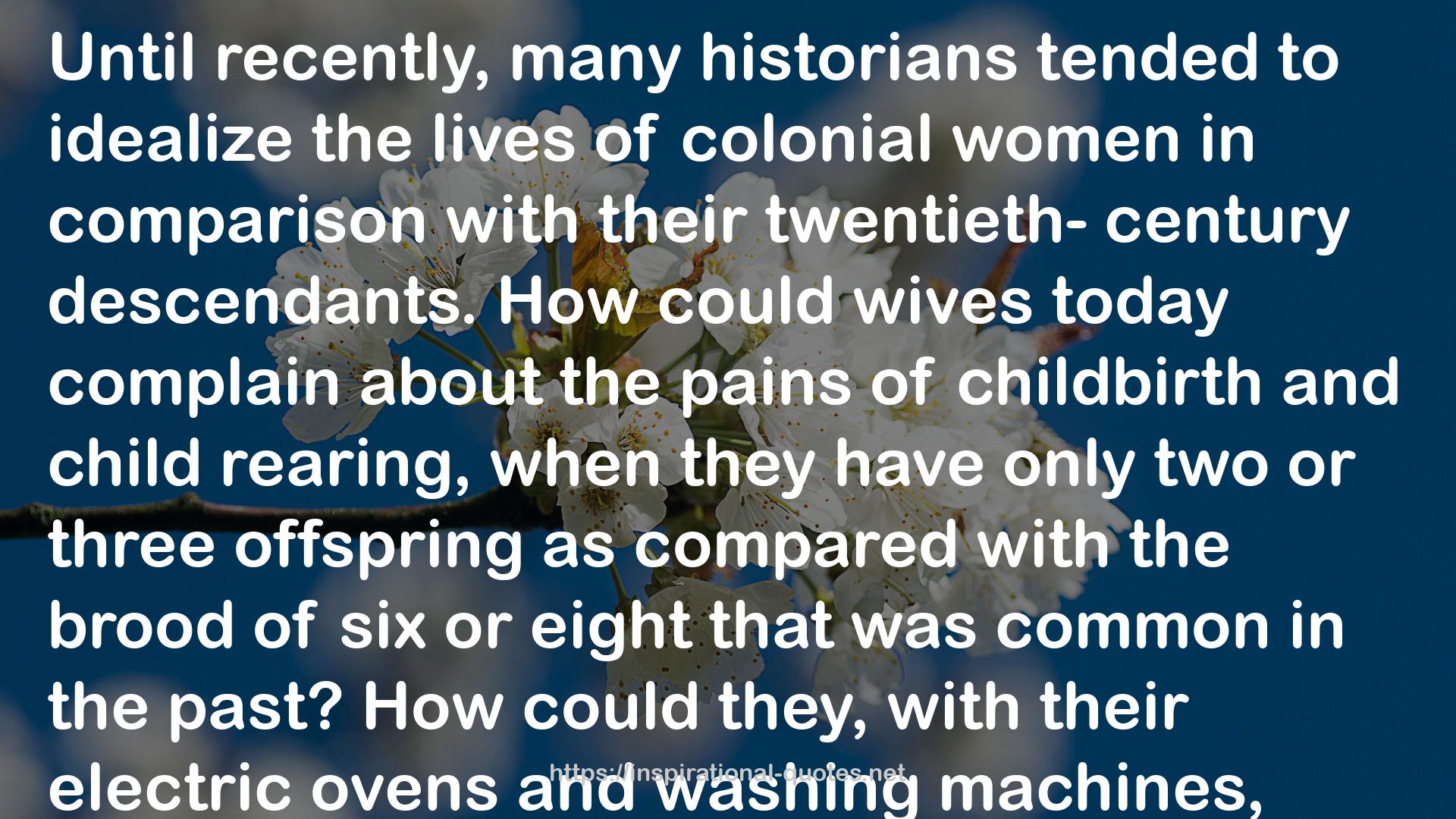" Until recently, many historians tended to idealize the lives of colonial women in comparison with their twentieth- century descendants. How could wives today complain about the pains of childbirth and child rearing, when they have only two or three offspring as compared with the brood of six or eight that was common in the past? How could they, with their electric ovens and washing machines, bemoan the demands of housework, when their American ancestors made everything from scratch, including the soap? Those “noncomplaining” women, noted for their industry and piety, were held up as models to “decadent” modern women, much as Roman women of the republic were glorified during the empire. But neither the imperial Romans nor hagiographic American historians bothered to ask what those “exemplary” women of the past might have thought of their own situations. They never asked whether those women were happy. It is one thing to judge a society by its public face on the friezes of temples or the pages of government documents, all created by men; it is quite another to look at the expressions of women’s subjective experiences in their poems, letters, diaries, and memoirs, or wherever else one can find them. "
― Marilyn Yalom , A History of the Wife
